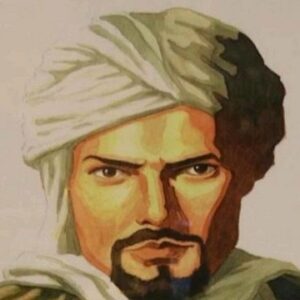Ibn Battuta is a historical traveler whose diaries go a long way toward offering a clear overview of the many nations he visited during his eventful life. His novels are still studied by history students because few travelers have been able to explain their experiences as clearly as he did. From an early age, the Moroccan wanderer began traveling the world and continued to do so throughout his life. He traveled to practically every country that was governed by Islam as a scholarly explorer. Ibn Battuta visited the courts of some of the world’s most famous kings and socialized with the locals in order to learn about the country’s culture. His accounts are free of obvious bias, according to seasoned historians, and allow readers to develop their own conclusions. Battuta wandered for three decades and is still considered one of history’s most famous travel chroniclers. There’s no doubt that Ibn Battuta had a fascinating existence, and according to some reports, he traveled a total of 75000 kilometers during his lifetime as a traveler.
Childhood and Adolescence
Ibn Battuta was born on February 25, 1304, in the Moroccan city of Tangiers, to a family derived from the ‘Berbers,’ an African tribal group. He came from a family of legal intellectuals who also happened to be judges at the time.
Although his specific location is unknown, it is assumed that he was a student of the Sunni Maliki school of thinking. The institution also provided Ibn Battuta with a literary education.
When Ibn Battuta was 21 years old, he embarked on his first adventure, which was a long journey to Mecca, the holy city. It was a pilgrimage, but he also went to nearby Damascus to learn from experts and receive credentials during his stay in Mecca.
The pilgrimage to the holy cities of Mecca and Medina set him on the way to becoming the exceptional traveler he became. Ibn Battuta was given the title of ‘El-Hajji’ at the end of his pilgrimage.
The Career of Battuta
At a time when most travelers were traders, Ibn Battuta was a traveler who made a living by visiting other nations. His money came from both beautiful gifts from kings and his standing as a man of letters. After living in Mecca until 1330, he traveled to Taizz in modern-day Yemen and Aden.
Ibn Battuta visited Mogadishu in Somalia in 1331, which was a thriving city at the time under Abu Bakr ibn Sayx ‘Umar, and then went to Mombasa and Kilwa, which was ruled by the ‘Kilwa Sultanate’. Kilwa’s town planning, according to Battuta, was highly sophisticated.
Ibn Battuta aspired to work for India’s Mohammad bin Tughlaq of the ‘Delhi Sultanate,’ so he traveled to Anatolia in 1332, which had been broken into pockets of lesser power centers in the years before the Ottoman Turks rose to power.
As part of Sultan Oz Beg Khan’s entourage, he traveled to the historic city of Constantinople in 1334 and received an audience with the ruling king, Andronikos III Palaiologos, to witness the birth of his grandson. The Roman emperor married the Sultan’s daughter.
Following his visit to Constantinople in 1334, Battuta embarked on his long-awaited journey to India, using the path across the ‘Hindu Kush Mountains,’ as did many other travelers at the time. In September of that year, Battuta arrived in Delhi and offered himself to Muhammad bin Tughlaq, the Sultan of Delhi.
Battuta was appointed as a judge and expert in Islamic Law in India by Mohammad bin Tughlaq, a man of literature; yet, Battuta was disillusioned with the situation in India because it was difficult to apply the law in a country where the majority of the subjects were non-Muslims. He worked in India for six years.
Battuta fell out of favor with Mohammad bin Tughlaq during his time in India, and it was only when he was chosen as the ambassador to the Sultanate of China that he was allowed to flee the emperor.
His last trips were to Spain and Sudan, two Islamic nations he had never visited before. Battuta’s reports of his time in Sudan, when he arrived in 1352, are still one of the best sources of knowledge on Africa at the time.
In the year 1353, Battuta returned to his native Morocco and began working as a judge. He is said to have served as a judge until the end of his life and dictated his memoirs to a ghostwriter.
Battuta’s Major Projects
The travelogue ‘Rihla,’ in which he offered a detailed account of his travels around the Islamic world at the time, has to be Ibn Battuta’s most important work during his lifetime. He traveled extensively during a thirty-year period, and his travelogue includes fascinating descriptions of the culture and way of life in those countries.
Personal History and Legacy
Little is known about Ibn Battuta’s personal life because his main source of knowledge is his book ‘Rihla,’ which claims that Battuta married the royal family of the Maldives while working as a judge there.
The specific cause of his death is unknown, and historians disagree over the year of his death. It’s possible that it happened between 1368 and 1369.
Estimated Net worth
From 1312 to 1337, Mansa Musa was the tenth Mansa, or conqueror, of the Mali Empire. Due to the amount of gold generated by Mali during his reign, he is usually regarded as one of history’s wealthiest figures. Mansa Musa’s net wealth at the height of the Mali Empire was equal to the current value of $400 billion.


